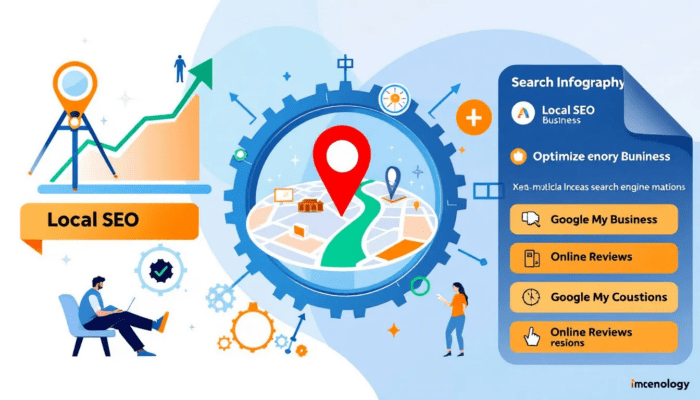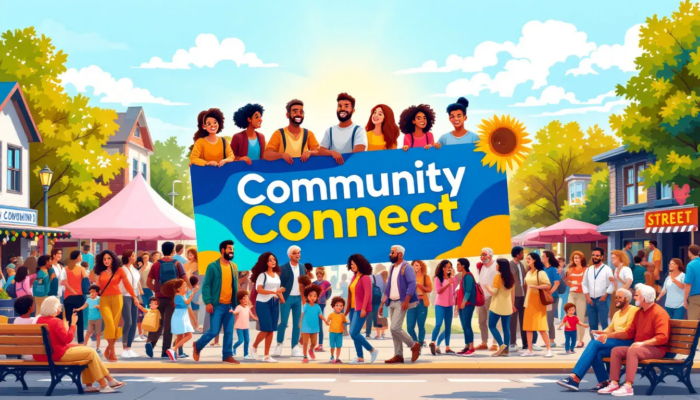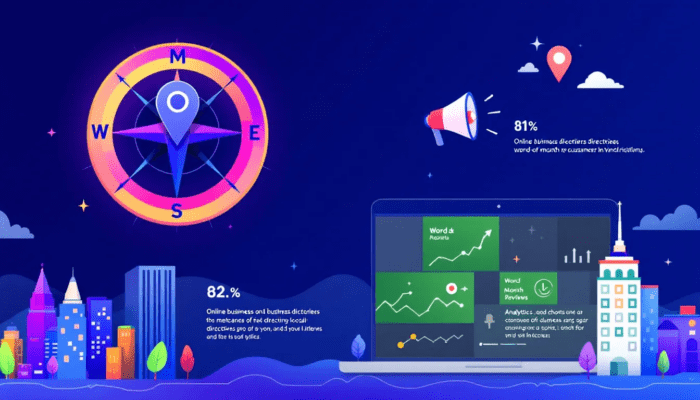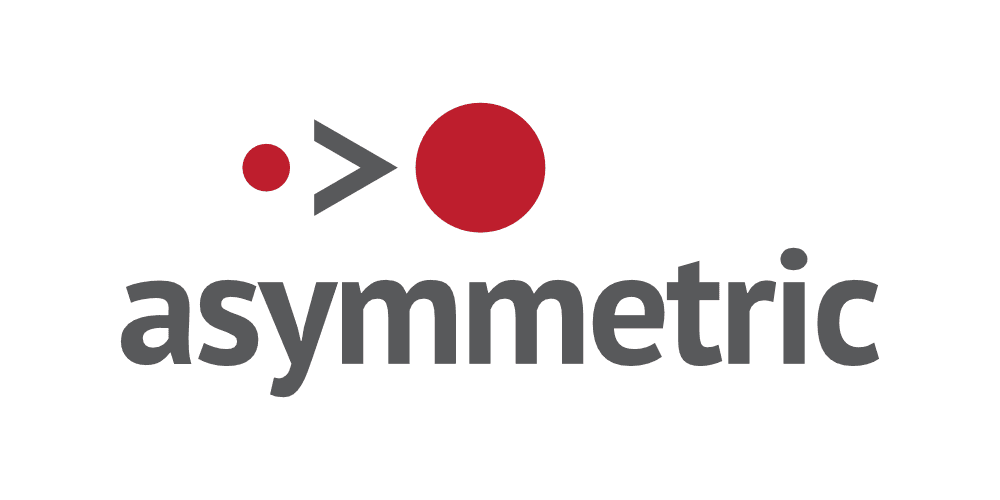Are you looking to attract more local customers and boost your visibility? This guide on the best local marketing strategies provides clear, actionable tips to help you succeed. Learn how to optimize your online presence, engage with your community, and more.
Key Takeaways
- Effective local SEO strategies, including optimizing website content and claiming Google Business Profiles, significantly enhance visibility and attract local customers.
- Engaging with the community through local events, social media, and personalized content fosters customer loyalty and strengthens brand trust.
- Implementing referral and loyalty programs while continuously monitoring and adjusting marketing strategies can drive customer retention and enhance overall marketing effectiveness.
Leverage Local SEO

Effective local SEO strategies are required to improve your business’s visibility and attract local customers. Optimizing your website for local SEO can significantly increase your online presence and attract nearby customers. Key strategies for enhancing local search visibility include optimizing your website content, engaging on social media, and gathering customer reviews. These efforts improve your search engine rankings and make your business more accessible to local consumers.
Enhancing local SEO involves updating title tags and meta descriptions with local keywords. Creating content promoting local events and highlighting community involvement makes your business more relatable to the local audience. These practices form the foundation of a successful local marketing strategy.
Next, we explore tactics for optimizing your website for local keywords, claiming and enhancing your Google Business Profile, and creating local landing pages. Each strategy is crucial in improving your local search results and attracting more local customers.
Optimize Your Website for Local Keywords
Using location-specific terms in your website content effectively connects with local customers. Using local keywords that reflect your services and geographical area improves search visibility and rankings in localized search results. This strategy ensures that your business appears when potential customers search for services in your area.
Integrating local keywords into your content boosts relevance for local search queries. For example, blogging about community events or local news can boost your local SEO and keep your audience engaged. Regular blog updates maintain audience interest and signal to search engines that your website is active and relevant.
Monitoring local search rankings helps assess your business’s performance in targeted searches. By keeping track of your performance, you can make informed adjustments to your local SEO strategy and ensure that your business remains competitive in the local market.
Claim and Optimize Your Google Business Profile
Claiming and optimizing your Google Business Profile is critical in enhancing your local SEO. An optimized profile includes up-to-date information such as your phone number, address, business hours, and services. This accuracy helps improve your search results and increases customer interaction.
An optimized Google Business Profile allows you to rank higher in local searches and show up for more search terms. This significantly affects your local SEO ranking and improves your online visibility. Additionally, enhancing your profile appeals to local customers, improving interaction and engagement.
Choosing the correct category for your business is vital for ensuring appropriate visibility. Inconsistent contact information can hurt your local search rankings, so keeping your profile information consistent and up-to-date is essential. This practice ensures that your business appears accurately in local search results and attracts more local customers.
Create Local Landing Pages
Tailored landing pages for each location your business serves significantly improve search visibility and relevance. Include local keywords and relevant information for the local audience on these pages. By doing so, you can ensure that your business appears in local searches and attracts potential customers from those areas.
Local landing pages enhance your local SEO and create a more personalized experience for your visitors. This personalization can lead to higher engagement and conversion rates, making it a vital component of a successful local marketing strategy.
Utilize Social Media Marketing

Social media is a vital channel for local businesses to quickly connect with their target audience. Businesses can leverage platforms like Facebook, Instagram, and Twitter to engage with their community and build a loyal following. Local hashtags in social media posts enhance relevance and increase visibility among potential customers.
Contests or giveaways on social media drive local foot traffic and encourage greater audience engagement. Offering discounts or free giveaways via social media attracts more customers and boosts your brand’s online presence. Engaging with the local community through Facebook Groups and other social media channels increases visibility.
Local influencer partnerships effectively extend your reach and enhance credibility within the community. Local influencers’ endorsements can promote your products and services to their followers, helping you connect with audiences you may not reach.
In the following subsections, we will explore how to tailor content for local audiences, run targeted social media ads, and engage with local influencers.
Tailor Content for Local Audiences
Creating localized content that reflects community interests can significantly enhance customer engagement. Blog posts and social media updates highlighting local events effectively engage community members and attract attention. This approach ensures that your content resonates with the local audience and keeps them returning for more.
Sponsoring local events increases visibility and connects with potential customers. Tailoring your content to the local audience can strengthen your connection with them and build a loyal customer base. This strategy is a key component of a successful local marketing campaign.
Referencing local landmarks, events, and news in your content makes your business more relatable and relevant to local customers. This relevance can lead to higher engagement rates and a more substantial online presence within your community.
Run Targeted Social Media Ads
Running targeted social media ads on platforms like Facebook and Instagram reaches potential customers in your local area. These platforms offer advanced targeting capabilities to customize ads to specific demographics, enhancing effectiveness. Focusing your marketing efforts on local online marketing increases sales and brand familiarity among local customers.
Tailoring local ads to your target audience's unique needs and interests makes them more relevant and engaging. This approach boosts your local marketing campaigns and ensures efficient use of your advertising budget. Direct mail campaigns complement social media ads by targeting specific neighborhoods.
Continuously monitoring and optimizing social media ads improves performance and drives more traffic to your business. This strategy is vital for attracting more local customers and building a strong online presence.
Engage with Local Influencers
Local influencer partnerships help businesses connect with audiences they may not reach alone. Local influencers have built trust and credibility within their communities, making their endorsements valuable. Collaborating with influencers who align with your brand values extends your reach and enhances your reputation.
These partnerships increase visibility and engagement, as influencers’ followers are more likely to trust their recommendations. Engaging with local influencers drives more local customers to your business and boosts overall marketing efforts.
Encourage Customer Reviews
Customer reviews are crucial for attracting new customers and establishing business credibility. Potential customers often read about ten reviews before evaluating businesses and deciding. Encouraging satisfied customers to leave positive reviews attracts more customers and enhances your business’s reputation.
The overall impact of positive customer reviews is essential for building trust and credibility. Responding to reviews improves your business’s reputation and customer engagement, showing you value feedback and address concerns.
Next, we discuss strategies for asking for reviews, responding to feedback, and showcasing reviews on social media.
Ask for Reviews
Asking customers to write reviews and simplifying the process increases the number of reviews received. Offering discounts, promotions, or giveaways can motivate customers to leave reviews. Gentle reminders can encourage customers who often forget to leave reviews.
Analyzing customer reviews helps understand satisfaction levels and identify service enhancement opportunities. Encouraging satisfied customers to leave positive reviews enhances business visibility and credibility on review sites, attracting more local customers.
Respond to Feedback
Responding to online reviews is key to managing customer relationships. Setting aside weekly time to respond to reviews maintains engagement and shows you value customer feedback. Responding to both negative and positive reviews shows appreciation and addresses concerns.
A suggestion box gathers anonymous customer feedback, providing valuable service improvement insights. Regular customer feedback surveys enhance marketing effectiveness and ensure you meet customer needs.
Showcase Reviews on Social Media
Positive reviews are crucial for influencing customer decisions in today’s market. Sharing positive customer feedback on social media boosts trust among potential customers, and showcasing reviews on social media builds trust and attracts new customers.
92% of consumers read online reviews before purchasing, emphasizing the importance of showcasing positive reviews. This strategy enhances your business’s online presence and encourages more customers to leave reviews, creating a positive feedback loop.
Participate in Local Events

Participating in local events powerfully increases brand visibility and connects with potential customers. Engaging with the local community helps businesses build relationships and foster loyalty. Sponsoring local events enhances brand visibility and improves the chances of local press coverage.
Volunteering at local non-profits or charity events raises awareness and engages with the community. If attendance is not feasible, sponsoring an event still provides community recognition.
Next, we explore the benefits of sponsoring local events, hosting your events, and attending trade shows and farmers markets.
Sponsor Local Events
Sponsoring events enhances a company’s reputation by demonstrating community commitment. Collaborative events enhance community engagement and attract a larger audience. Planning joint events creates a community-focused atmosphere that fosters loyalty and trust.
Sponsoring community events significantly enhances brand recognition and connects with potential customers. This strategy effectively promotes your business and builds a positive local community image.
Host Events
Hosting events allows businesses to create a personalized experience aligning with their brand values. These events directly engage the local audience, allowing businesses to showcase offerings and build relationships.
Hosting events creates memorable experiences that foster loyalty and encourage repeat visits. This strategy is valuable to a successful local marketing campaign, attracting more local customers and enhancing community connections.
Attend Trade Shows and Farmer's Markets
Investing in booth space at local events helps businesses connect with community members. Participating in trade shows and farmer's markets allows businesses to promote offerings directly to the local audience and engage with potential customers.
Giving away branded merchandise at events attracts attention and increases visibility. Engaging with the community through events and promotional strategies significantly enhances visibility and builds customer relationships.
Implement Referral Programs
Referral programs use existing customers to generate new business through incentives. Offering rewards for referrals motivates customers to share your business with their networks. This strategy increases customer acquisition and loyalty, making it a valuable part of a successful local marketing strategy.
Promote your referral program using email marketing and social media to inform customers. Tracking and measuring the success of your referral program helps monitor effectiveness and adjust strategies based on data.
Next, we discuss offering referral rewards, promoting your referral program, and tracking and measuring success.
Offer Rewards for Referrals
Incentives like discounts effectively motivate customers to leave reviews and refer new clients. Offering referral rewards motivates customers to share your business, increasing customer acquisition and loyalty.
A referral rewards program enhances customer engagement and drives business growth. Positive referrals increase customer acquisition and loyalty, making it a valuable strategy for attracting more local customers.
Promote Your Referral Program
Utilize localized email marketing to reach out to your customers and inform them about your new referral program. Segment your email list based on location to send targeted messages regarding the referral program. Personalize the email content to resonate with customers by highlighting the benefits of referring new clients.
Engage with your local audience through social media platforms to announce and promote your referral program. Tailor content for your local audiences, including posts about the referral program that resonates with their interests. Run targeted social media ads to effectively reach potential customers in your area and inform them about the referral program.
Track and Measure Success
Implement referral programs to leverage existing customers and attract new clients. Offer rewards for referrals to incentivize customers to recommend your business. Promote your referral program to keep it visible and encourage participation.
Monitor and adjust your marketing strategies based on key metrics such as conversion rates and customer feedback. Track key metrics like website traffic and referral rates to gauge the success of your referral program. A/B test different elements of your referral program to determine which tactics are most effective.
Enhance Local Listings and Directories

Accurate business listings are essential as they significantly boost visibility and credibility. Claiming and optimizing your Google Business Profile improves accuracy in search results and allows for customer reviews. Maintaining accurate listings enhances overall visibility and builds trust with potential customers.
Tools like Moz Local can simplify claiming and managing your local listings effectively. This practice ensures that your business appears accurately in local search results and attracts more local customers.
In the following subsections, we will discuss registering with local business directories, keeping information updated, and optimizing listings for SEO.
Register with Local Business Directories
Around 28% of small businesses invest in online listings, which enhances their visibility and customer outreach. Listings on directories fuel word-of-mouth marketing, creating more buzz around your business. Popular local directories include Yelp, Merchant Circle, and Google My Business.
Maintaining accurate NAP (Name, Address, Phone Number) information ensures customers can reach your business easily. Tools like Moz Local can simplify claiming and managing your local listings effectively.
Keep Information Updated
Ensuring your business information matches your Google Business Profile is crucial for maintaining brand consistency. Whenever your business information changes, such as hours or contact details, be sure to update your listings promptly.
Monitoring your directory listings allows you to respond to customer comments and reviews, which is essential for maintaining your business’s credibility. Regularly review your listings to ensure all information is current and accurate to avoid potential customer confusion.
Optimize Listings for SEO
Selecting the appropriate categories in online listings can greatly enhance the likelihood of being found in local search results. Using relevant keywords in your online listings improves visibility, helping potential customers find your business more easily.
Optimizing your listings for SEO ensures that your business appears accurately in local search results and attracts more local customers. This practice is a crucial component of a successful local marketing strategy.
Use Localized Email Marketing
Localized email marketing is an effective way to reach out to your customers and inform them about your business. Businesses can obtain email addresses with location data through sign-up sheets at physical locations, events, or online forms on the website. Promoting a referral program through email campaigns and social media engagement can attract new customers.
By segmenting your email list and personalizing email content, you can create targeted campaigns that resonate with local audiences. This approach enhances your marketing efforts and drives foot traffic to your business.
In the following subsections, we will discuss segmenting your email list, personalizing email content, and promoting local events and offers.
Segment Your Email List
Segmenting your email list allows you to create targeted campaigns that resonate with local audiences. Utilize localized email marketing to reach out to specific community segments for increased relevance in your communication. Tailor your email content for local audiences by including local events, news, and customer interests.
Personalize email content by addressing customers by name and referencing their local context. Promote local events and offers in your emails to enhance engagement and drive foot traffic to your business.
Personalize Email Content
Localized email marketing involves crafting emails that resonate with the interests and needs of the local audience. Segmenting your email list allows you to group subscribers based on their location, ensuring that your messages are relevant to them.
Email campaigns to inform subscribers about upcoming local events and special offers enhance engagement and drive customer participation. This strategy is a crucial component of a successful local marketing campaign.
Promote Local Events and Offers
Participating in local events can significantly increase your brand’s visibility and create valuable connections within the community. Sponsoring local events helps enhance brand recognition and connect with potential customers in a positive setting.
Hosting events, such as workshops or open houses, offers direct engagement with your local audience. Tailoring social media content to highlight local events and offers can resonate well with your audience and boost community engagement.
Invest in Local Advertising

Local businesses can create hyper-local ads tailored for each location, giving them a competitive edge over national chains. Effective local advertising campaigns can significantly enhance brand visibility and customer engagement. By focusing your marketing efforts on local demographics, you can increase the likelihood of conversions and drive more traffic to your business.
Location-based advertising helps identify the most suitable audience by effectively targeting specific areas. Investing in Google Ads and PPC campaigns can significantly impact local marketing strategies.
The following subsections will discuss running Google Ads with location targeting, utilizing local media outlets, and trying direct mail campaigns.
Run Google Ads with Location Targeting
Google and Facebook offer platforms with localized ad features. To create local relevance, use photos of the actual location in display and retargeting ads. Implement third-person language in ad copy to improve click-through rates.
Collect data on clicks and conversion rates to optimize Google Ads for location targeting. By focusing your advertising efforts on local search results, you can attract more local customers and enhance your business’s online presence.
Utilize Local Media Outlets
Businesses can advertise in various types of local media, including newspapers, radio stations, and TV channels. Advertising in local newspapers is a suggested option for businesses looking to increase visibility. A proactive approach to media relations can create opportunities for free or low-cost advertising and help enhance credibility.
Engaging with local media can help businesses effectively target specific geographic audiences and enhance community connections. This strategy is a valuable component of a successful local marketing campaign.
Try Direct Mail Campaigns
Direct mail is a cost-effective method for reaching local customers. Your direct mail strategies should include attention-grabbing mailers, discounts, promotions, and QR codes. According to the 2021 ANA Response Rate Report, direct mail campaigns have proven effective.
By incorporating direct mail into your local marketing strategy, you can reach a targeted audience and drive more traffic to your business. This approach complements your digital marketing efforts and enhances your overall visibility.
Collaborate with Other Local Businesses
Partnerships with local businesses can significantly expand your exposure and access to new customer bases. By forming local partnerships, you can gain credibility and trust through association with other businesses. Pooling marketing resources and budgets with local partners can enhance your overall impact within the local market.
Consider partnering with businesses that complement yours, ensuring they share similar and non-competing values. The following subsections will discuss cross-promoting products and services, co-hosting events, and sharing marketing resources.
Cross-Promote Products and Services
Collaborating with other local businesses can significantly expand your reach and introduce your services to new customer bases. Co-hosting events allows local businesses to draw in customers from each other’s audiences, increasing foot traffic and brand visibility.
Sharing marketing resources, such as joint advertising and promotions, can help decrease costs while maximizing exposure to a larger audience. This strategy is a valuable component of a successful local marketing campaign.
Co-Host Events
Co-hosting events allows local businesses to combine their customer bases, drawing in more foot traffic and increasing visibility in the community. Businesses can collaborate to run joint promotions and discounts, attracting customers from both businesses and enhancing overall sales.
By sharing marketing resources, businesses can effectively reduce costs and increase the impact of their event advertising. This approach fosters community engagement and strengthens relationships with local customers.
Share Marketing Resources
Pooling marketing budgets and resources allows local businesses to create more impactful advertising strategies. Collaborating with non-competing local businesses can expand your reach and tap into new customer bases.
Cross-promoting products and services with a partner business can attract new clients and maximize marketing efforts. Co-hosting events with other local businesses can strengthen community ties while bringing in customers from both sides.
Optimize for Mobile Users
In today’s digital age, optimizing for mobile users is crucial for ensuring a seamless user experience across various devices. Responsive web design adjusts the layout according to the user’s device, enhancing the viewing experience on any screen size. Google’s Mobile-Friendly Test tool can check a website’s mobile responsiveness.
The growing number of local mobile searches requires businesses to ensure their online presence is mobile-friendly. Embracing mobile optimization fosters a better connection with users, enhancing your business’s online presence.
The following subsections will discuss responsive web design, fast loading times, and mobile-specific features.
Responsive Web Design
Responsive web design adjusts the layout according to the user’s device, enhancing the viewing experience on any screen size. Maintaining a consistent brand image across all devices is crucial for building customer trust.
Websites should adjust layout and content dynamically to fit any device's screen size. This approach ensures your website is accessible and user-friendly, regardless of the device used.
Fast Loading Times
Research indicates that nearly half of users expect a web page to load within two seconds, highlighting the critical need for speed. Optimizing image sizes and compressing files are crucial strategies to improve loading speed on mobile devices. Incorporating mobile-friendly features like click-to-call can enhance user engagement and conversions.
User-friendly navigation is critical for mobile sites, as it facilitates easier access to information. Incorporating click-to-call buttons simplifies the process for users to contact businesses directly from their mobile devices.
Mobile-Specific Features
Mobile users should have access to the same information as desktop users. Features like bigger text, form fields, menus, and buttons make browsing mobile-friendly sites easier. Mobile-friendly features are crucial for ensuring a positive user experience.
Implementing these mobile-specific features enhances user satisfaction and encourages engagement with the website.
Engage with the Local Community
Engaging with the local community is essential for building trust and loyalty towards your brand. Community activities foster a sense of belonging and strengthen relationships with local customers. Relating your story to the local community convinces customers to support local businesses over corporations.
Non-profit activities, local sports teams, and community events are excellent ways businesses engage with the local community. Utilizing content created by local customers can enhance authenticity and strengthen community ties.
In the following subsections, we will discuss volunteering locally, joining the local chamber of commerce, and supporting local causes.
Volunteer Locally
Engaging with the local community through service projects can strengthen relationships and foster customer loyalty. Participating in community service benefits the local area and raises awareness about your business and its values.
Local businesses are encouraged to participate in service projects to give back and promote a positive community image. This approach helps build a strong connection with the local community and enhances your business’s reputation.
Join the Local Chamber of Commerce
Local business owners can join the Local Chamber of Commerce to access resources and networking opportunities. This membership provides valuable connections and support for small businesses in the community.
By joining the local chamber, businesses can participate in events and initiatives that promote local commerce and foster community engagement. This strategy helps build a strong network and enhances your business’s visibility within the local market.
Support Local Causes
Supporting local causes fosters trust and loyalty among community members, enhancing your business reputation. Sponsoring local events not only increases brand recognition but also meaningfully connects your business with potential customers.
Organizing your events allows you to engage directly with the local audience, showcasing your support for the community. Volunteering locally provides hands-on opportunities to contribute to community welfare, reinforcing your business’s commitment to social responsibility.
Create Local Content
Using location-based terms to create content relevant to the local audience can significantly improve engagement and SEO. Using local keywords and phrases throughout your website enhances its relevance to local searches. Understanding the local audience is crucial for creating relevant content that resonates with community interests.
Build guides for local activities to create engaging, informative content that strengthens community ties. Formats such as monthly newsletters or blogging about local updates can keep your audience engaged.
In the following subsections, we will discuss blogging about local topics, using local keywords, and sharing user-generated content.
Blog About Local Topics
Blogging about local topics helps businesses connect with their community and address highly specific local issues. Local content should focus on highly specific local issues and news that resonate with the community.
Creating seasonal and timely local content builds community, adds philanthropy, and infuses festiveness into marketing efforts. Examples of seasonal content include Domestic Abuse Awareness Month, National Compliment Day, and Financial Literacy Month, which can enhance local community engagement.
Use Local Keywords
Local content should include relevant local keywords and topics of interest to ensure they resonate with your local audience. Incorporating local keywords into your content is crucial as it enhances search engine optimization, making it easier for local customers to find your business online.
Using local keywords can improve your search visibility and attract more local customers. This strategy is a vital component of a successful local marketing campaign.
Share User-Generated Content
Encouraging customers to share their experiences can boost your brand’s visibility and credibility, leading to greater customer loyalty. Share positive reviews on your social media profiles to build trust and attract new customers.
Utilize social media to engage with local audiences and share user-generated content, creating a connection between your brand and customers. Building strong relationships with the local community can foster loyalty and word-of-mouth marketing, creating a solid brand foundation.
Utilize Local Media for Publicity
Advertising in local media builds trust and keeps consumers informed about businesses. Local media exposure can increase brand awareness and attract new customers. Examples of localized paid ads include local newspapers, radio spots, coupon books, and sponsorships.
Sending press releases to local outlets can effectively announce significant business milestones and attract attention. By engaging with local media, businesses can enhance their visibility and credibility within the community. In the following subsections, we will discuss press releases, contributing articles, and appearing on local radio/TV shows.
Press Releases
An effective press release should highlight your business's newsworthy aspects, such as product launches or community events. Tell the local newspaper about an event you’re hosting to gain publicity.
Press releases are valuable tools for promoting significant business updates or events to local audiences. This strategy can enhance your business’s visibility and attract more local customers.
Contribute Articles
Contributing articles to local newspapers and online publications is a great way to promote your business and share valuable information with the community. Write useful and relevant posts that address the local audience's needs and interests.
By contributing articles, you can establish yourself as an authority in your industry and build trust with local customers. This approach enhances your business’s reputation and visibility within the community.
Appear on Local Radio/TV Shows
Participating in interviews or segments on local radio and TV programs allows businesses to effectively reach and engage with a local audience. Advertising in local newspapers, radio stations, and TV channels is an effective way to reach a broader local audience.
Utilizing local media outlets increases visibility and builds credibility and trust within the community. Sending press releases to local newspapers and news stations regarding significant business updates can establish a business as a community leader.
Implement Loyalty Programs
Loyalty programs encourage repeat business and foster long-term customer relationships. Effective loyalty programs can enhance the overall customer experience by rewarding loyal patrons. These programs bolster brand loyalty and recognition by providing exclusive rewards to repeat customers.
Loyalty programs can significantly enhance customer retention by offering tailored rewards that encourage repeat visits. The following subsections will discuss offering points-based rewards, exclusive member benefits, and tracking customer purchases.
Offer Points-Based Rewards
Points-based rewards are a popular incentive for customers to return and engage more with the brand. Points-based systems incentivize customers to make purchases to earn rewards.
A points-based loyalty scheme allows customers to earn points for purchases, which can be redeemed for rewards like discounts or exclusive products. This approach can enhance customer loyalty and drive repeat business.
Exclusive Member Benefits
Loyalty programs can provide members early access to sales and special discounts, fostering exclusivity. Businesses can send discounts and promotions to loyalty program members through email, and direct mail is another effective option. Providing exclusive member benefits enhances the overall customer experience and encourages repeat visits.
This strategy is a valuable component of a successful local marketing campaign.
Track Customer Purchases
Loyalty programs can collect helpful information about customers. Tracking customer purchases allows businesses to tailor their marketing strategies and offer personalized rewards. By understanding customer behavior and preferences, businesses can enhance their marketing efforts and drive more store traffic.
This approach fosters loyalty and encourages repeat business.
Monitor and Adjust Your Strategy
Regular evaluation of marketing strategies is crucial for identifying areas needing improvement. Measuring local online marketing results helps identify your strategy's strengths and weaknesses. Establish a system to track marketing activities and results, allowing for informed adjustments.
Regularly monitoring performance allows businesses to adapt strategies for better results. Comparing advertising channel spending with overall revenue growth allows you to evaluate the ROI of different channels. Keeping abreast of local marketing trends enables businesses to refine their approaches and maintain a competitive edge.
Track Key Metrics
Identifying and tracking key performance indicators is essential for evaluating marketing effectiveness. Businesses can gain valuable insights into their marketing performance by monitoring metrics such as website traffic, conversion rates, and customer feedback. This data allows businesses to make informed decisions and adjust their strategies to achieve better results.
Tracking key metrics is a vital component of a successful local marketing strategy.
A/B Test Campaigns
Conducting A/B tests on marketing campaigns helps determine the most effective strategies. Testing different marketing tactics helps determine which strategies yield the best performance.
Experimenting with various marketing strategies allows businesses to pinpoint which tactics yield the best results. A/B testing allows marketers to isolate campaign changes by altering only one variable at a time.
Stay Updated on Trends
Keeping abreast of marketing trends ensures strategies remain relevant and competitive. By staying updated on the latest trends, businesses can refine their approaches and maintain a competitive edge in the local market. This approach allows businesses to adapt to changing market conditions and customer preferences, ensuring their marketing strategies remain effective.
Staying updated on trends is crucial to a successful local marketing campaign.
Summary
In this article, we’ve explored the top 15 best local marketing strategies to boost your business. From leveraging local SEO to engaging with the local community, these strategies are designed to help businesses connect with their local audience and build lasting relationships. By implementing these tactics, you can enhance your business’s visibility, attract more customers, and create meaningful connections within your community.
Remember, a successful local marketing strategy requires continuous monitoring and adjustment. By staying updated on trends and refining your approaches, you can ensure your marketing efforts remain effective and competitive. With these strategies, you can take your local marketing to the next level and achieve lasting success.

Frequently Asked Questions About Local Marketing Strategies
Why is local SEO important for my business?
Local SEO is essential for enhancing your business's visibility and drawing in customers from your vicinity. By optimizing for local search, you can significantly improve your search engine rankings and accessibility for nearby consumers.
How can I encourage customers to leave reviews?
Encouraging customers to leave reviews can be effectively achieved by directly asking for feedback and streamlining the review process. Additionally, offering incentives such as discounts or promotions may further motivate customers to share their experiences.
What are the benefits of partnering with local influencers?
Partnering with local influencers significantly enhances your reach by tapping into their established trust and credibility within the community. This collaboration fosters genuine connections and elevates your brand's visibility among targeted audiences.
How can I ensure my business information is accurate across local listings?
To ensure your business information is accurate across local listings, regularly review and update your listings to match your Google Business Profile. This consistency helps avoid potential customer confusion and enhances your brand's reliability.
What are the advantages of implementing a loyalty program?
Implementing a loyalty program significantly enhances customer retention and encourages repeat business by offering tailored rewards and exclusive benefits. This fosters long-term relationships with customers, ultimately benefiting the business.

Best Local Marketing Strategies to Grow Your Business
Ready to attract more local customers and grow your business? With the right strategies, you can dominate your local market and build lasting connections with your community.
Take the Next Step:
- Contact Us: Let’s talk about tailoring local marketing strategies for your business.
- Schedule a Consultation: Book a free session to explore actionable solutions for your local market.
- Learn More: Discover expert insights to enhance your local marketing efforts.
Get started today and make your business a local leader!
About the author
Mark A. Hope is the co-founder and Partner at Asymmetric Marketing, an innovative agency dedicated to creating high-performance sales and marketing systems, campaigns, processes, and strategies tailored for small businesses. With extensive experience spanning various industries, Asymmetric Marketing excels in delivering customized solutions that drive growth and success. If you’re looking to implement the strategies discussed in this article or need expert guidance on enhancing your marketing efforts, Mark is here to help. Contact him at 608-410-4450 or via email at mark.hope@asymmetric.pro.

